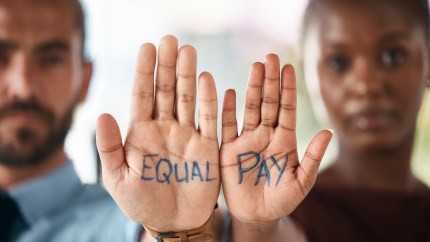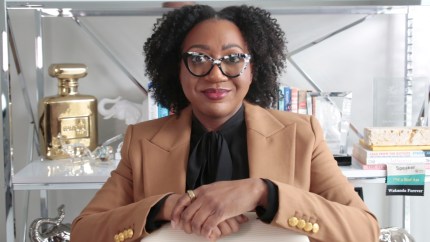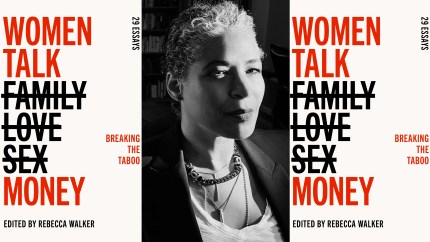‘Like walking a tightrope’: Black women are sick and hurt from getting overlooked, reduced at work
As a Black female professional, everything from your intelligence, demeanor and appearance can be perceived as “intimidating.”

One Black woman’s tale of being overlooked at work struck a nerve among theGrio family and reawakened the age-old discussion of discrimination in the workplace. Cue the collective deep, exhausted Negro spiritual sigh.
Clocking into work as a Black woman, whether in-person or virtually, can feel like going into battle. Black employees, but especially Black female employees, are forced to face the natural challenges that come with any job while simultaneously dodging waves of microaggressions and stereotypes, hitting the proverbial glass ceiling, and more.
As author Regina Lawless describes it, being a Black woman in the workplace “is like walking a tightrope.” Lawless is also the founder of Bossy & Blissful, an organization working to help high-achieving Black women have intentional and sustainable success at work and at home,
She said she uses the tightrope description “because you have a very narrow path that you can walk and any false move in a direction can leave you exposed. In those environments, the white male leaders are the archetype for what leadership is. And so, as a Black woman, you’re not only having to fight against the stereotype of [being] a woman, so you’re not thought of as leadership potential in most cases,” she explained. “[But also] you’re battling the stereotypes of you have to be dominant and forceful. But of course, if you’re too dominant and forceful, particularly as a Black woman, that works against you because of the negative stereotypes of us being angry or aggressive.”
As previously published by theGrio, some Black women like Chantel Adams have been denied promotions because of being “so articulate and sharp that it was intimidating to some people.” Adams, like many Black women in the workplace, did everything in her power to be a successful, productive employee by taking on additional responsibilities, submitting work on time, etc. Though she followed the unspoken guidelines for climbing the corporate ladder, higher-ups still found an excuse to keep her stagnant.
Recommended Stories
“They need for us to be reduced so that they can feel tall! Who she is disrupts their imagination of us being less than they are,” one person commented on theGrio’s Facebook post. “They can’t handle it.”
“And yet we have always had to be ten times better just to get the job in the first place. Nothing more intimidating than a POC that is more intelligent than the majority race,” another commenter added.
Lawless, like many of the users in the comment section, recalls countless times that her colleagues overlooked her despite her work and authority as an executive in tech. This is what experts call the “broken rung” theory, which reflects the proverbial glass ceiling women face when trying to make the first step in climbing the corporate ladder. According to McKinsey & Company, “For every 100 men we see leap forward, only 87 women advance. And if you’re a woman of color, it’s 73. If you’re a Black woman, it’s only 54.” This theory coincides with the well-known pay gap that Black women continue to face.
Regardless of whether you’re aiming for a promotion, the array of stereotypes and microaggressions that Black women experience can create a toxic and ultimately uncomfortable environment that can have lasting impacts on women’s mental health.
“What starts to happen is not only are you made to feel like you do not belong, that messes with our psyche, because as human beings we all want to belong someplace. Feeling excluded actually registers as physical pain in our brains,” Lawless explained. “So you have that that’s messing with your mental health. And then you have the gaslighting.”
The Bossy & Blissful founder shared how her boss not only ignored her reports of incidents in the workplace but also responded with racially discriminatory comments, which she says further eroded her sense of not being respected in that office.
Although leaving these environments seems like a simple solution, the reality of today’s job market, paired with most Black women’s responsibilities as their household’s primary breadwinners, forces women to stay in these situations.
“I still had to provide for my family,” Lawless shared when reflecting on her toxic work experiences. “So that also messes with your mental health because so many of us as black women, our caregivers, just walk away from these toxic spaces.”
So, to the Black women who are trying to survive life in corporate America, where they are faced with microaggressions, stereotypes and more, Lawless offers three pieces of advice:
- Develop a daily self-care routine. Make sure you’re spending time with yourself at the start of the day to get grounded. That could be exercise, meditation, music, journaling, or reading — whatever brings you joy and gives you quiet time to connect with yourself.
- Solicit feedback from a trusted source. Identify someone at work you can trust to give you honest feedback to validate any biased feedback you may be receiving from your boss or peers. Sometimes how we talk or behave can be unfairly assessed against biased standards, so it’s important to get feedback on the substance or what the actual outcome or impact is to see if you need to tighten up any skills to be effective in that area.
- Seek out affirming spaces. Whether it’s joining an employee resource group at work or finding community outside of work, getting together with like-minded individuals is a way to counterbalance the isolation we often face as Black women in leadership or cope with constant microaggressions. Ultimately, though, if the environment is unbearable, it’s best to look for an exit. No title or amount of money is worth your mental health or dignity.
Never miss a beat: Get our daily stories straight to your inbox with theGrio’s newsletter.
More About:Lifestyle

















